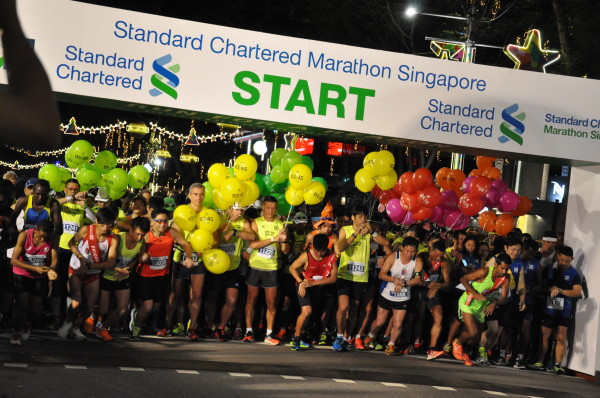When they are running, especially during races, most runners follow a specific set of “golden” rules – which have been accepted as the norm in running, over the years.
Here are five of these rules in running:
-
Run at your goal race pace
In order to train for a race, it is recommended that you do training runs at your goal race pace. For example, if you are intending to run a marathon in 4 hours and 30 minutes, you should train at a pace of 6:30 minutes per kilometre as often as possible. If your training runs are at a 7 minute per kilometre pace, you are not going to be likely to achieve your target during the race.
2. Do not run too soon after a big meal
This is a common rule not just for running, but for any intensive sports exercises. Try and wait for at least two hours after a big meal, so that the food can digest, before you set out on a run. However, different people may vary in terms of digestion rates, for example, some may require three or four hours to digest, while for others, one and a half hours may be sufficient. But in all cases, if you run too soon after eating, you are most probably going to end up with stomach cramps, vomiting and an uncomfortable, bloated stomach.
3. Do 10 minutes of warm up before and after running
It is advised that you should do at least 10 minutes of warm-up before embarking on a hard run or even after any run – for that matter.
This warm-up period should consist of walking and slow jogging and its purpose is to increase the body’s temperature and blood flow, to gear the body up for the hard exercise session ahead. As for the cool-down period, it is to get the body temperature to settle and the heart rate to return to normal. If you don’t cool down sufficiently, you are at a higher risk of suffering leg cramps, nausea or may even faint after the exercise session.
4. Do not try anything new before a race
If you want to try a new dietary regime on race day, make sure that you test it out first, at least several weeks before the race. Do not try it out for the first time on the morning of the race. This will only lead to disaster. That’s because it will increase your chances of indigestion, which may lead to all sorts of stomach problems during the race itself.
5. Eat 30 to 60 minutes after a race or a training run
After you have completed a hard race or a difficult training session, it is very important to get carbohydrates and protein rich foods into your body about 30 to 60 minutes after the run. This is to replenish the glycogen stores that you have used during the race, as well as to repair muscle wear and tear. Some good examples of food items you should consume, may include a peanut butter sandwich or a glass or packet of chocolate milk.
However, there is an exception to this rule – if you know for certain that you aren’t running within the next 24 hours, then it may not be so vital to get the nutrients in, as your body will have sufficient time to recover.


Also, go to the toilet and don’t drink too much water before the run.